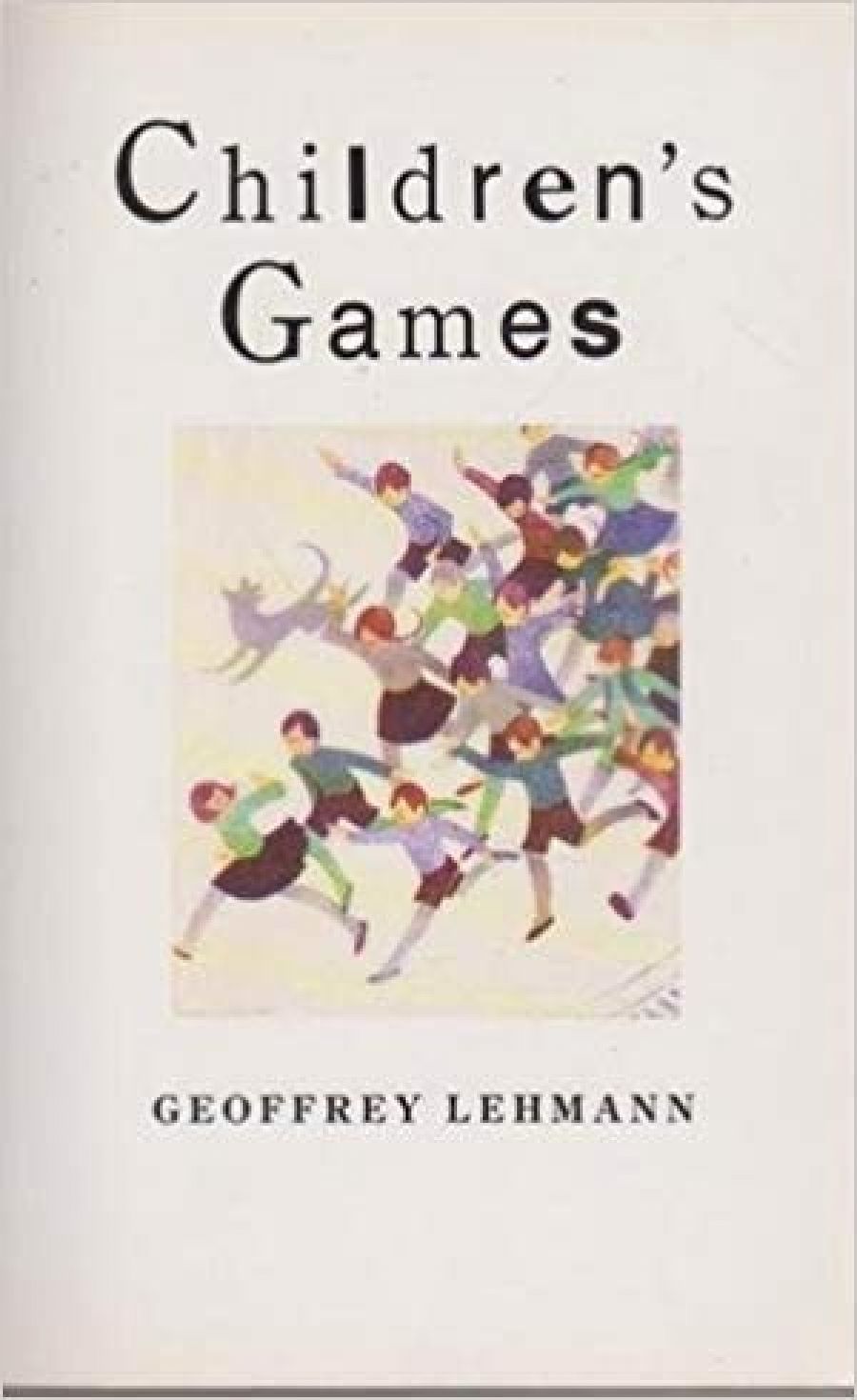
- Free Article: No
- Contents Category: Poetry
- Review Article: Yes
- Online Only: No
- Custom Highlight Text:
How different can two books be? Peter Rose’s first book, The House of Vitriol, is one of the first off the rank for the new Picador poetry series – and a sign of things to come. It is mercurial where Lehmann is mild. Rose’s style is very distinct: gaudy and revved up from the start.
- Book 1 Title: Children’s Games
- Book 1 Biblio: Angus & Robertson, $12.99 pb, 64 pp
- Book 2 Title: The House of Vitriol
- Book 2 Biblio: Picador, $12.99 pb, 117 pp
- Book 2 Cover Small (400 x 600):
0001.jpg)
- Book 2 Cover (800 x 1200):
0001.jpg)
- Book 2 Cover Path (no longer required): images/1_Meta/March_2020/Meta/Application1(2020-3-5)0001.jpg
Lehmann is very measured in these poems, and skilful at all times, with the emotion kept low, the tension drawn very thin. His characteristic detachment is evident here; in most of the poems he uses the third person to portray the self/persona:
Watching her private rites,
her hair-wash in the shower, he asks
himself, ‘Why me?’
Lehmann is always aware of the other separation between people, no matter how close, so many of these poems double, as it were, for this wider human condition and make the unity achieved or lost that much more poignant.
But, by the time I reached the sestina sequence ‘With Father Before Christmas’, I was worrying how much of this book was going to repeat the domestic of children, lonely parent, the longing for another love, the finding of another love … The sestinas themselves, however, are remarkable for their technical skill. On a rapid sight-reading they are all but camouflaged. Only during the third did I realise that they were sestinas, so smoothly and flexibly are they achieved. He has handled the repetitions with such ease.
In fact all the poems are precisely observed throughout; the language is neat, exact. They are beautifully, if safely, made – and poignant, as I noted above – and yet I found them ultimately rather flat and for all their fluency, lacking sizzle. This is nice but mild poetry. And this family drama occupies half the book, too often the same ground being raked over. And over. Too much space yielding too little discovery, too much narrative, and not enough other. There are almost too careful.
Of Lehmann’s other strengths, there is a real warmth and humanity and his humour stands out, particularly in those poems that have left the family, in the later stages of the book:
My favourite road sign
Marist Brothers
Mount St Margaret.
Poor woman – step down from the window in the sky
then all those Marist Brothers.
His sonnet sequence is the strangest inclusion, and one I enjoyed despite the couplets clunking through like the dog-gears in Larry Grice’s Commodore at Bathurst! And the long poem ‘Neighbours’ is as prosaic as hell, but has eccentric charm.
How different can two books be? Peter Rose’s first book, The House of Vitriol, is one of the first off the rank for the new Picador poetry series – and a sign of things to come. It is mercurial where Lehmann is mild. Rose’s style is very distinct: gaudy and revved up from the start:
Because as a youth
I was too easily flattered
by roués in ChevroletsBecause my excuses are my memories,
and vice versaBecause, held captive in the Monumental City,
I lost all reason,
dipped my camera in the holy water
And on it goes. This pace, and ironic self-comedy is typical of Rose’s manner, even if at times the deliberate gaudiness progresses into the meretricious. Poems seem to lose themselves in their verbal extravagance, in the maze of their own marvellousness:
Keen to rouse you from your
torpor of historic resentment,
I began extolling the blossom,
how it laurelled a ghost nest
with ermine and coronals.
Dangling above my head
six candescent lemons
replaced the advertised almonds.
Inserting a tooth,
laughing at my hybrid proof,
you rejected my offering,
tart token of our inconsonance
At their worst, then, indulging too much showiness of allusions – to literature, painting, music – and a much displayed vocabulary, they ring a bit cleverly hollow, a brilliant shell. Easy to feel the excitement of, but hard to fully enjoy and, somehow, deeply anonymous.
Yet even these poems are witty and sustained, for all their compulsively sounding brass. It’s all for its own sake, the drama, the hyperbole, the wildly satiric game of it. Very Peter Porter. And poems that tone it down just a little are as dramatic and maybe more memorable for the added control:
Run to ground in a desecrated cemetery by
the Murray River, I am told that a power failure
has occurred in the town’s electricity plant,
throwing the entire region into darkness,
an existential night in which the ubiquitous
love-maddened cicadas and the Jewel Hotel’s
sun-wizened inhabitants fall silent for a moment
before droning intoxicatedly on.
The literal fire in the library that develops in this poem, and the recognition of another part of the psychological self, create a depth of vulnerability and even sad desperation that is a balancing characteristic in many of the poems, saving them from the worst fate of cleverness.
The Young Poet series is marvellously satiric and many of the later poems of the collection are very assured indeed. It was some of the earlier poems I most deflected or was deflected by. I think I’m right in detecting a few side-shots at women, but then even Auden and Maugham are given the treatment. There is no denying Rose’s power and articulateness. His tonal and syntactic abilities are impressive for any collection, let alone a first one. With more clarity, this flamboyant poet will go far. What a delight, given the too plain times of poetry we live in.


Comments powered by CComment